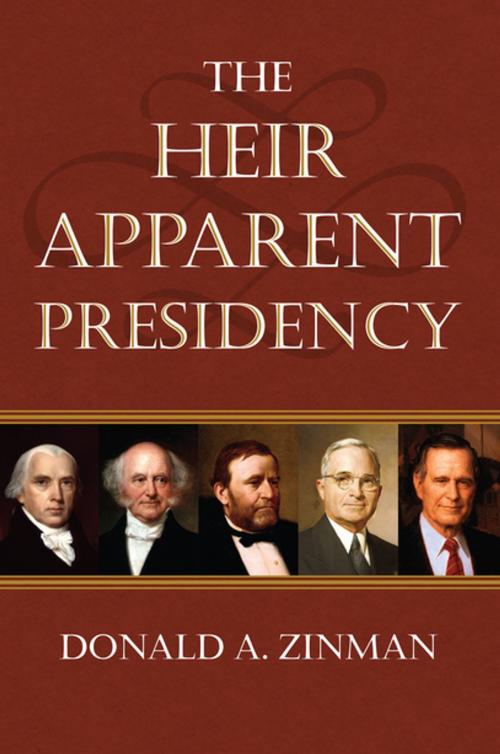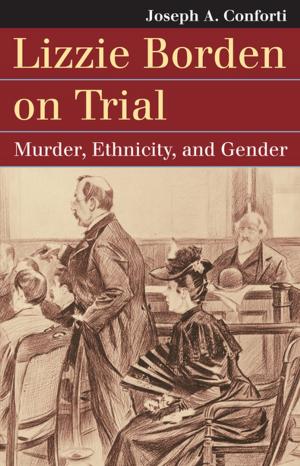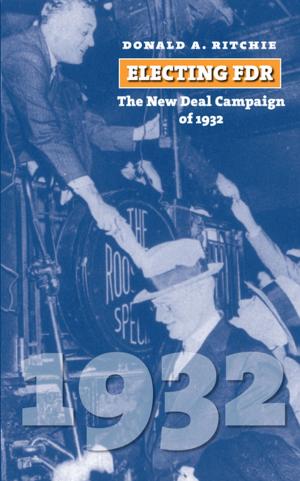The Heir Apparent Presidency
Nonfiction, Social & Cultural Studies, Political Science, Politics, Leadership, History & Theory| Author: | Donald A. Zinman | ISBN: | 9780700622085 |
| Publisher: | University Press of Kansas | Publication: | March 8, 2016 |
| Imprint: | University Press of Kansas | Language: | English |
| Author: | Donald A. Zinman |
| ISBN: | 9780700622085 |
| Publisher: | University Press of Kansas |
| Publication: | March 8, 2016 |
| Imprint: | University Press of Kansas |
| Language: | English |
It was during the Depression, with the Republican regime in disarray, that Franklin D. Roosevelt came into office with a mandate to change the role of government. His was one of the presidencies—like Jefferson’s, Jackson’s, and Lincoln’s before his, and Reagan’s after—that transformed the political system. But what of the successors of such transformative figures, those members and supporters of the new regime who are expected to carry forward the policies and politics of those they replace? It is these “heir apparent” presidents, impossibly tasked with backward-looking progress, that Donald Zinman considers in this incisive look at the curious trajectories of political power.
An heir apparent president, in Zinman’s analysis, can be successful but will struggle to get credit for his achievements. He must contend with the consequences of his predecessor's policies while facing a stronger opposition and sitting atop an increasingly weakened and divided party. And he will invariably alternate between three approaches to leadership: continuity, expansion, and correction. Looking in depth at James Madison, Martin Van Buren, Ulysses S. Grant (an heir apparent as the first genuine Republican to succeed Lincoln), Harry S. Truman, and George H. W. Bush, Zinman reveals how these successors of regime-changing presidents at times suffered for diverging from their predecessors’ perceived policies. At times these presidents also suffered from the consequences of the policies themselves or simply from changing political circumstances. What they rarely did, as becomes painfully clear, is succeed at substantially changing the policies and politics that they inherited.
It is a perilous and often thankless business, as The Heir Apparent Presidency makes abundantly clear, to follow and lead at once. Tracing the ways in which heir apparent presidents have met this challenge, this book offers rare and valuable insight into the movement of political time, and the shaping of political order.
It was during the Depression, with the Republican regime in disarray, that Franklin D. Roosevelt came into office with a mandate to change the role of government. His was one of the presidencies—like Jefferson’s, Jackson’s, and Lincoln’s before his, and Reagan’s after—that transformed the political system. But what of the successors of such transformative figures, those members and supporters of the new regime who are expected to carry forward the policies and politics of those they replace? It is these “heir apparent” presidents, impossibly tasked with backward-looking progress, that Donald Zinman considers in this incisive look at the curious trajectories of political power.
An heir apparent president, in Zinman’s analysis, can be successful but will struggle to get credit for his achievements. He must contend with the consequences of his predecessor's policies while facing a stronger opposition and sitting atop an increasingly weakened and divided party. And he will invariably alternate between three approaches to leadership: continuity, expansion, and correction. Looking in depth at James Madison, Martin Van Buren, Ulysses S. Grant (an heir apparent as the first genuine Republican to succeed Lincoln), Harry S. Truman, and George H. W. Bush, Zinman reveals how these successors of regime-changing presidents at times suffered for diverging from their predecessors’ perceived policies. At times these presidents also suffered from the consequences of the policies themselves or simply from changing political circumstances. What they rarely did, as becomes painfully clear, is succeed at substantially changing the policies and politics that they inherited.
It is a perilous and often thankless business, as The Heir Apparent Presidency makes abundantly clear, to follow and lead at once. Tracing the ways in which heir apparent presidents have met this challenge, this book offers rare and valuable insight into the movement of political time, and the shaping of political order.















